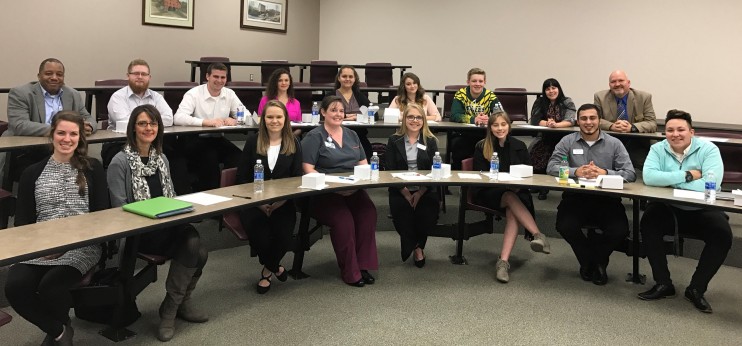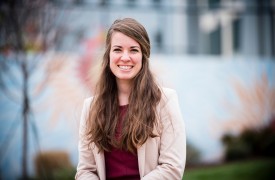
As a part of ZSR’s yearlong strategic assessment process and Mo Wants To Know listening and learning tour, the Foundation selected a handful of communities to give us a better sense of trends that might be emerging across North Carolina. As our travels began to wind down, Foundation staff noted a dearth of input from one key demographic: young people ages 15-30. For example, submissions from our Mo Wants To Know online portal showed that of more than 100 respondents, fewer than 9 percent were from North Carolinians under the age of 30, compared to at least 25 percent of submissions from individuals over the age of 50. To address this disparity of perspectives, Foundation staff decided to embark on a two-day Youth Learning Tour.
We identified two communities – one urban and one rural – that we thought would provide a diverse range of perspectives from young people. We spent day one in the City of Greensboro, where staff met with activists and community organizers, students from North Carolina A&T, Guilford College, and UNC Greensboro, and young professionals in the nonprofit and philanthropic sectors from across the state. On day two, we traveled to Wilkes County, where we met with two young entrepreneurs, students at a Wilkes County high school, a young local attorney and community leader, as well as students from Wilkes Community College. The individuals we met with either fit under the category of Generation Z (under 21) or Millennials (age 21-37).
It was clear through our Youth Learning Tour that young people are extremely knowledgeable about their communities and have a keen sense of the opportunities and challenges they face. The individuals we met with raised concerns about a myriad of issues, from jobs and economic well-being, to environmental sustainability and the future of education. They also articulated nuanced ideas to address those issues, and were interested in being part of the solution. Paradoxically, there was sentiment that young people are rarely engaged by institutions and decision-making bodies to address the issues that affect them.
Throughout the Youth Learning Tour, we asked tough, thought-provoking questions, and in return, received thoughtful, powerful responses. We heard what it might take to mend the rural-urban divide, suggestions for how foundations can better support grassroots organizers, and ideas for transforming the philanthropic sector to address 21st century needs. One learning that stands out is the importance of cultivating diverse, intergenerational leadership on boards and staffs of nonprofits. Millennials’ constant why’s bring promising ideas and a fresh sense of ingenuity to solving the issues we care about. It is important for those who are in institutional leadership positions in communities to not only engage young people, but to also embrace their perspectives, trust them and learn from them.
We are so grateful to all the young people we met for sharing with us their time, thoughts and honest feedback. Though the Foundation does not yet know its future direction, the insights we gleaned from this portion of our tour will certainly inform our process moving forward, especially as we think about developing and supporting future leaders in our state.
